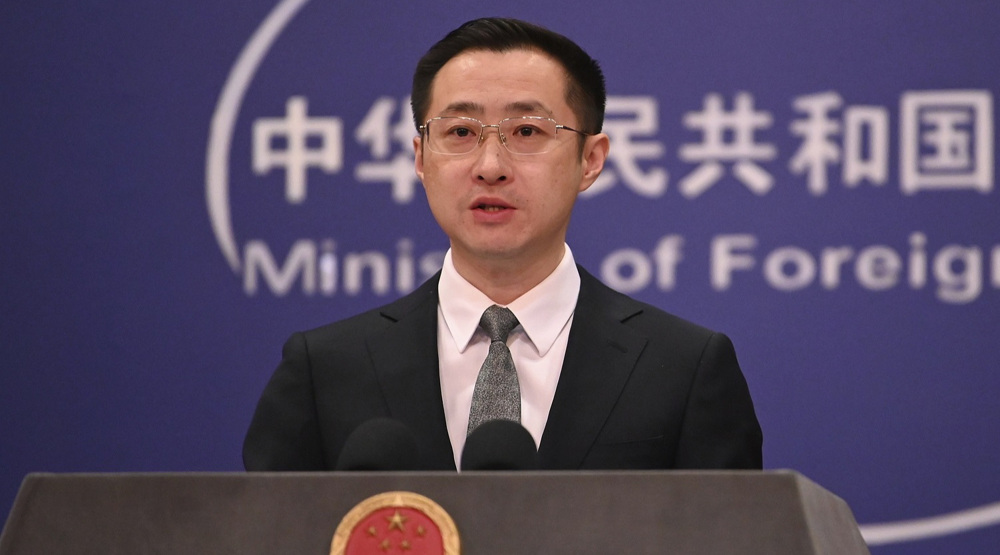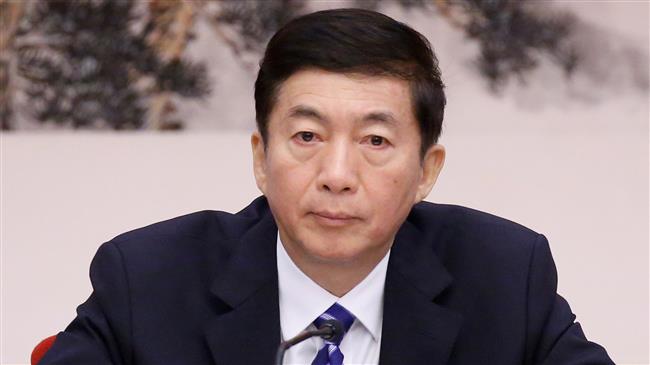Hong Kong reshuffles cabinet to revive economy hit by pandemic
Hong Kong has appointed five new principal officials as part of one of its biggest cabinet reshuffles in years in a declared attempt to revive its economy hit by the new coronavirus pandemic.
The reshuffle, announced on Wednesday, was approved by China’s State Council earlier in the day.
Based on the new appointments, Director of Immigration Eric Tsang will replace Patrick Nip as head of the Constitutional and Mainland Affairs Bureau.
Nip has been reassigned as the head of the city’s civil service, replacing Joshua Law.
The shake-up came two days after Nip apologized for conflicting statements from Hong Kong’s government about the role of Beijing’s Liaison Office in the city.
Beijing’s top representative office in the city had said it was not bound by a law that restricted interference by other mainland Chinese agencies in Hong Kong. The remarks prompted conflicting statements from the Hong Kong government regarding the legal status of the Liaison Office, and Nip apologized for that confusion.
Hong Kong’s secretary for financial services and the treasury, secretary for innovation and technology, and secretary for home affairs will also be replaced under the new reshuffle plan.
Hong Kong’s Chief Executive Carrie Lam said the replacement of the ministers was aimed at reviving the economy of the Asian financial hub, which has been hit by the coronavirus outbreak.
“I have started to map out the strategies for rebooting Hong Kong after the pandemic,” Lam said at a news conference. “A major goal of this reshuffle is to help Hong Kong to get out of this difficult situation as soon as possible.”
Lam also said that the new appointments had nothing to do with the episode involving Beijing’s Liaison Office.
The novel coronavirus, which causes a respiratory disease known as COVID-19, emerged in the central Chinese city of Wuhan in Hubei Province late last year, incrementally affecting the rest of the world.
The virus has afflicted some 2.56 million people around the world and killed nearly 177,500 others, according to a count by Johns Hopkins University.
Hong Kong has so far reported 1,030 confirmed cases and four deaths.
The city had been rocked by turbulent protests since June last year, when the government of the semi-autonomous territory proposed a bill that would have reformed the city’s extradition law. The bill was later withdrawn, but protests continued and took on violent forms. The pandemic then ended the protests.
Hong Kong has been governed under a “one-country, two-system” model since the city — a former British colony — was returned to China in 1997.
VIDEO | Former FBI agent criticizes US Congress for 'outright corruption'
IRGC chief urges Muslim countries to cut aid routes to Israel
'New chapter in cooperation': Iran, Venezuela sign new MoUs
Jordan sentences former lawmaker for supporting Palestinian resistance
Basij volunteer forces hold massive drills in southwestern Iran
Israeli war criminals 'not welcome', US city says after ICC ruling
US vetoing of Gaza ceasefire resolution ‘disgraceful’: Iran’s UN envoy
VIDEO | IAEA adopts anti-Iran resolution tabled by E3











 This makes it easy to access the Press TV website
This makes it easy to access the Press TV website